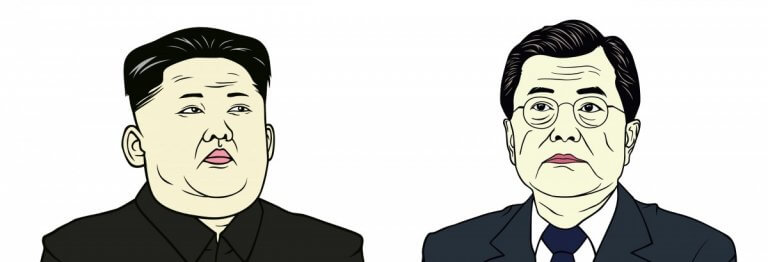
Politics have a tendency to affect the industries around them. Universities are no exception to this.
From Brexit in the UK to the election of US President Donald Trump, universities are at the receiving end of any benefits and setbacks that arise from major political events.
For 2018, the biggest geopolitical event thus far has revolved around the rogue Asian state North Korea.
Its leader Kim Jong Un shook hands with a sitting American president and met with his Southern counterpart for the first time in 10 years.
What looked like just two Korean men talking in a demilitarised zone, however, is nothing short of historic, with its impact reverberating through many sectors across the Korean peninsula. Markets were expected to react as they did in the fall of the Berlin Wall, K-pop stars from the South are since performing in the North and hope has been given to the possibility of thousands of family reunions.
A historic moment, not only for the Koreas, but potentially also the world.
North Korea’s Kim Jong Un and South Korea’s Moon Jae In pic.twitter.com/0hCCowDXYj
— mes #TeamPinky (@OH_mes) April 27, 2018
Across South Korean universities, improved relations have given rise to the provision of more courses on North Korea.
According to The Diplomat, there is currently a lack of South Korean universities offering North Korean studies. The glory days of having multiple institutions – from Dongguk University introducing it in 1994, followed by Myongji University in 1995, Catholic Kwandong University in 1996, Korea University in 1997, Chosun University in 1998 and Sun Moon University in 1998 – are over.
The 90s boom tapered as not many students showed interest in the subject during a time of strained inter-Korean relations, leading to many institutions like Chosun and Catholic Kwandong shutting down or merging this major with international relations or political science studies.
Writing in Policy Forum, PhD candidate Christopher Green from Leiden University described the 2016 demise of Korea University’s (KU) Department of North Koreanology as “sad and unwise”. The study will cease to exist as an undergraduate major, to be mered in a new major focusing on unification, diplomacy and national security.
While KU defended the move as a necessary step in the “harsh economic reality”, many students felt it deserved more focus.
“However, the study of North Korea deserves unique treatment – to South Korea, they say, it ought to be seen as a matter of life and death,” Green wrote.
Only two higher education institutions in the South offered North Korean studies at the end of May 2018: Dongguk University and the University of North Korean Studies. Interested students are limited to universities in the US (University of Detroit Mercy) or UK (University of Central Lancashire; SOAS University of London).
But with improved relations comes greater demand for professionals with relevant knowledge, be this in market analysis or tourism. This should come as good news since the study had previously struggled due, in part, to the sheer lack of job prospects for graduates, as well as shrinking departmental budgets and logistical difficulties.
Korea Higher Education Research Institute’s Lim Eun-hee said that a long-term approach is needed for the government and universities to be able to operate North Korean studies.
As the two Koreas increase cooperation, such studies will be essential, Lim notes.

Growing demand for those who can interpret this. Source: Shutterstock
Beyond this, Nam Sung-wook, a professor of North Korean studies at KU, lists the necessity of having a separate course for North Korean studies which will encompass its language, history, economy, politics, international relations and inter-Korean relations as well as cooperation:
“Although they are the same people, they have been divided for 70 years, and therefore their systems, ideologies, and cultures are all different.”
The hermit kingdom poses some of the most interesting geopolitical questions of today. South Koreans and the rest of the world would benefit from having more experts on hand.
And with the South’s growth in English-taught courses, lower tuition and living costs, as well as relatively high scholarship opportunities, political science students ignore the region’s potential as a study abroad destination at their own peril.
Liked this? Then you’ll love…
South Korea drops entry requirements, offers scholarships to international students
Kenyan, Chinese are first foreign students to graduate with top honours in South Korea







